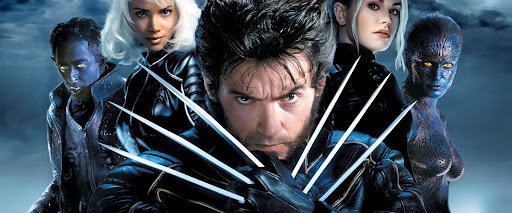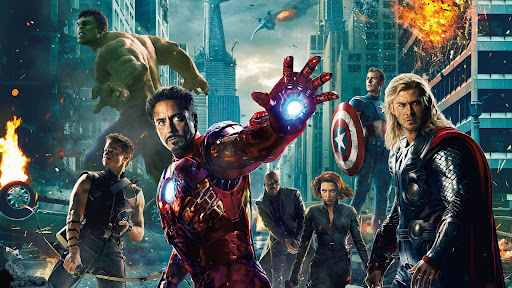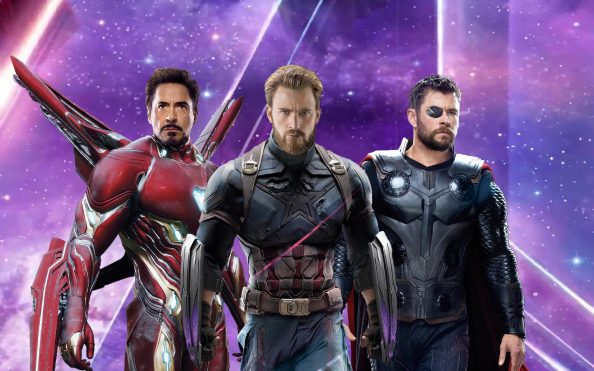Best Marvel movies
The Marvel Cinematic Universe is so vast and diverse these days that the franchise deserves its own interactive ranked list. And while we love Marvel, there’s no denying that not every movie ever released from Marvel Studios is a hit.
If you were only going to watch the top three Marvel movies, which movies would make a list? “Avengers?” “Black Panther”? “Guardians of the Galaxy”? Anyway, the online casino in India has a game on the motif of each of these films. The choice is extensive. Here you can find:
- Avengers;
- Spider-Man;
- X-Man.
Avengers
Some would say the top of the tops is “Iron Man.” It’s got a lot of Downey Jr., great jokes, an excellent plot, a compelling villain, and non-cartoon special effects. Now that’s a breakthrough. And here’s what we say.
The actual event that changed the balance of power in the comic book adaptation market showed who’s boss was not Jon Favreau’s masterpiece, whose script was written as it was filmed, but the first big crossover. “The Avengers” blew up the box office and proved that the idea of putting so many different heroes together on the big screen is not a utopia. It wasn’t for nothing until the second phase of the Marvel Cinematic Universe that Kevin Feige and the crew began experimenting and taking more risks. Note that the studio had such doubts about the success of “The Avengers” that they had to shoot a sequel to “Iron Man urgently.” The success of the co-star Tony Stark was no comparison with the films about the adventures of the other members of the superhero team.
The film doesn’t strut and plunges into fast-paced events. The Tesseract, hunted by Hydra and the United States, led by Captain America and Tony Stark’s father Howard, begins to emit complex scientific-magical energy from the cosmos. It turns out that he can open portals. And he decides to set one up for Loki, Thor’s brother, at the agency base, where Clint Hawkeye Barton is overseeing everything. Director Nick Fury orders Agent Colson, who interrogated the Thunder God in the Thor solo movie, to start the evacuation, and Dr. Selvig from the same Thor movie doesn’t understand what’s happening with the movie’s macguffin. And that’s the first seven minutes. So it wasn’t that much of a stretch to watch the last five parts to understand what’s going on in “The Avengers,” and that’s incredibly cool. Like comic books, you get a quick page-by-page outline of the exposition.
It’s a hugely noisy, bright blockbuster. Monstrously eye-catching commercials: everything flying, exploding, Transformers-like things over New York City. Instant recognition effect. Everyone should go to it and bring their money. And for that, the person who walks into the session doesn’t have to sit and wonder who’s who and why. The geeks, in turn, will be thrilled because they’ve seen and read a hundred other comic book episodes.
Avengers: Infinity War
Where is “Age of Ultron?” Despite the apparent repetition of all the moves from the first part, Joss Whedon failed to repeat the very feat he accomplished by literally putting together the first “Avengers” piece by piece. The context had changed, and his approach was no longer relevant. The funny thing is, he realized it himself. As a nerd god (See Firefly, Buffy, at the very least, which is why geeks respect Joss – or did, until Justice League), Whedon wanted to give his heroes development. Show people, not superheroes. What it means to be a vigilante for everyone, and why these particular people ended up on the same side together in the first place.
But the experiments of the second phase made studio bosses realize they should move off the beaten path. So the director’s hands were twisted and forced to make the same “Avengers” again. The infernal contrast between the author’s vision and the copypasta of the first film is especially felt in some scenes.
The franchise needed a fresh look and approach, especially since the threequel involved all the heroes and one new villain now of universal proportions. The Russo brothers had already blown up the dance floor twice before Infinity War, finding the perfect approach to the most boring Captain America.
First Avenger: Civil War
Kevin Feige doesn’t seem to have figured out how to develop Cap’s character. How to surprise the audience with a story about a boring idealist, if not change the setting again, as was the case with the second part of the adventures of Steve Rogers? Cram almost all the Avengers into the picture and make them fight.
That’s not the point. The movie is a purely commercial product and a clever move by Disney, who feared a robust bid from Warner in the form of Batman v Superman. So it makes sense that a threequel about the Captain was to continue the story of Steve and Bucky “Winter Soldier” Barnes’ relationship. And let’s not lie, that line is there, too, on top of a hundred thousand others.
They each have their truths and their traumas. The only problem is that they solve them with resources that entire nations could use. Flying into Germany and blowing up the airport is still not a problem for either hero. And this is in a movie where superheroes are accused of violating the laws and borders of sovereign states.
X-Men 2
As you know, the scripts for the main line of the X-Men franchise were written by manatees of a set of words: Eric, Charles, mutants, us, future, duty, injustice. And the most retrograde, boring man in Hollywood, Bryan Singer, is to blame.
Thanks to his approach, comic book movies got a little more severe and showed that superheroes aren’t just dudes in tights and rubber. Instead, mutants are a metaphor for racism, intolerance, and God knows what else. It’s a shame that Singer forgot about the excellent action in the 2001 film, but he corrected that flaw in the second installment.
To this day, X-Men 2 is considered one of Marvel’s best about mutants. The Singer managed to concentrate on the fact that mutants and humans are afraid of each other, and this fear can lead to disaster. In the first film, Professor Xavier’s coalition fought the Magneto brotherhood, and the question of relations with humans was drowned in the personal and rather lax contradictions of the mutant leaders. Moreover, the brutality of Wolverine, played by Hugh Jackman, turned the viewer off from serious questions.
Oddly enough, the director manages to speak more globally by putting Wolverine at the center of the plot and linking him directly to the villain. Paradoxically, that’s what Singer is all about. His scale is evident in his personal stories. No one else does that.
Spider-Man 2
My best friend Spider-Man! Unlike DC’s mastodons Batman and Superman, who have appeared on the screen more than once and in different versions, the Marvelian protagonist has been coming to the big screens for a long time and creaking. Back in the late eighties, an adaptation of the adventures of Peter Parker from Metro Goldwyn Meyer was planned. James Cameron was attached to the project and owned the idea of the organic web. But, alas, it didn’t work out. Lack of funding and weak demand for a teenage hero buried the idea.
The sequel surpassed the original by several heads. First, Peter will have to decide if he wants to be a hero and a hero in general or just a masked vigilante (ha!) playing off his complexes and problems on villains, albeit deserving of punishment. That said, there’s no gloominess whatsoever. It’s still a colorful dizzying ride that set the standard for blockbuster comics for years to come.




















